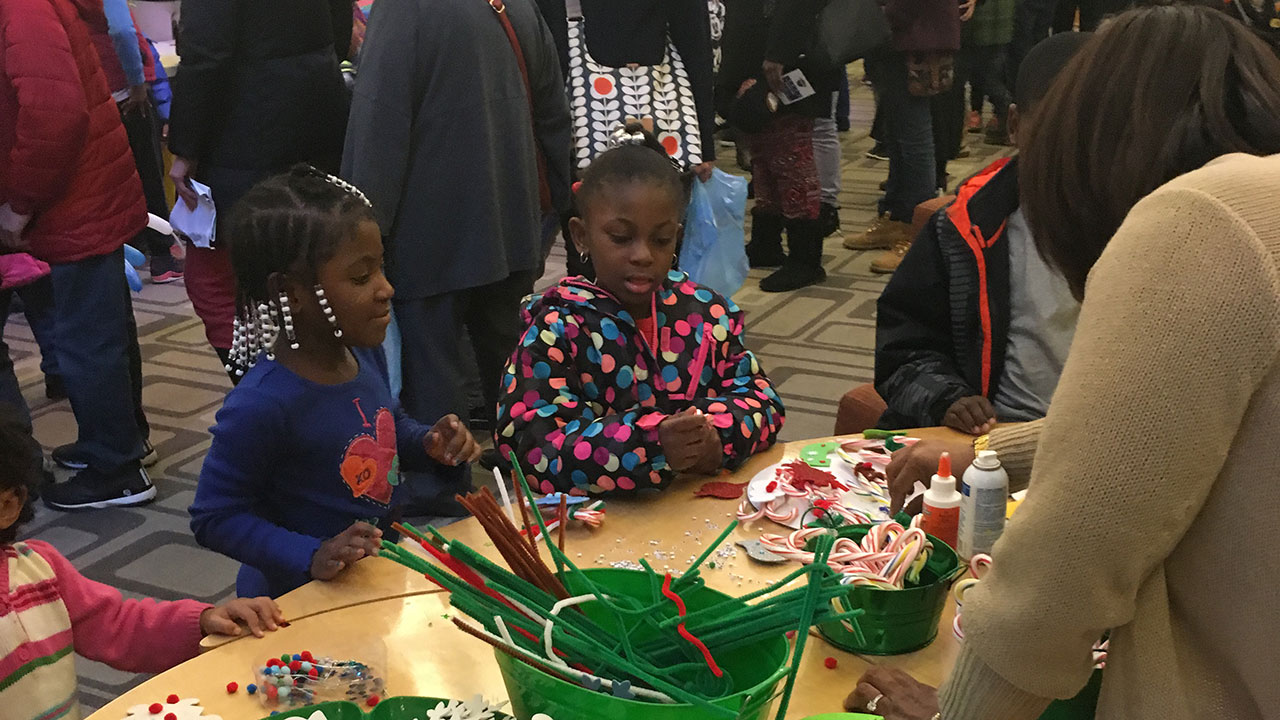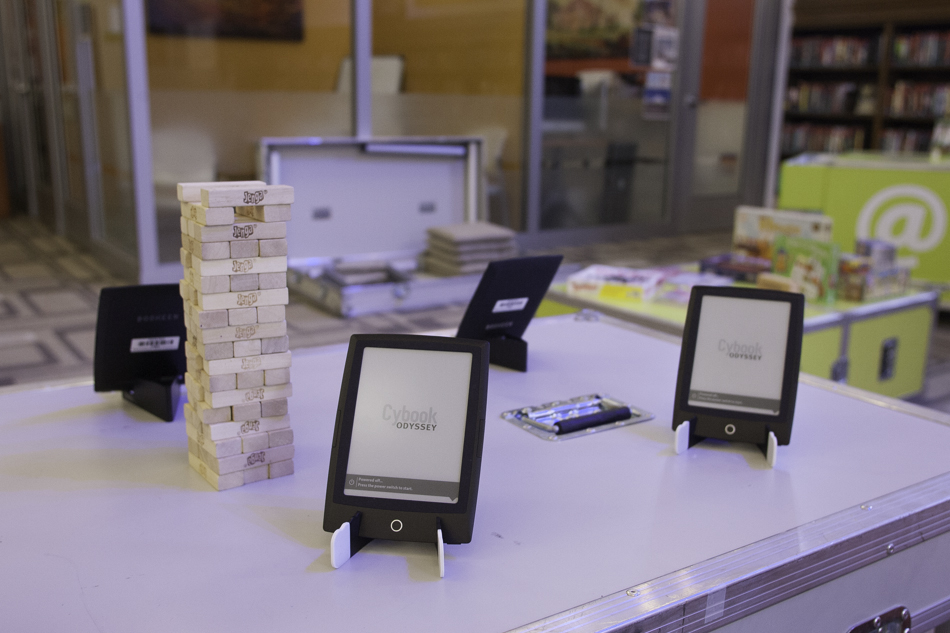
How we can find focus with flexibility in our libraries
Photo above: Parents and kids interact with Ideas Box at Detroit Public Library’s Central Branch. Courtesy of Libraries Without Borders.
Allister Chang is executive director of Libraries Without Borders.
Librarians today work as teachers, researchers, social workers and publishers. Libraries lend baby toys, baking pans and fishing poles. They serve as lively community centers, quiet study spaces and specialized museums. Some provide Wi-Fi hotspots and others offer a welcoming invitation to defrost on a cold day. They lend books in buses, on boats, via donkeys and through birdhouses. What I find beautiful and exciting about libraries today is that they continue to be, as Alice Crawford explores in “The Meaning of the Library: A Cultural History,” “a changing and organic entity, something that is constantly adapting and becoming something else.”
At Libraries Without Borders, we see the library as one of the most powerful and dynamic tools of community development. In our experiences working in the most isolated and under-resourced communities in over 20 countries, we have learned that one of the most important ingredients for a successful library program is a thorough needs assessment. Too often, we have seen English books donated to non-English speaking communities. We’ve brought these lessons back home to the U.S., where we put a similar focus on building community partnerships to identify the key goals and priorities for each community before co-designing the space and co-selecting the contents. By customizing programs to local contexts, we have built libraries that differ in designs, contents, programs and aims. Our libraries at laundromats in the South Bronx support resume writing for adults, while our libraries in Detroit support numeracy for fourth- and fifth-grade students after school and during school vacations.
By listening to our partners working in other issue areas, we have seen exciting potential for libraries to fill new demands. Libraries are uniquely positioned to build wrap-around services that bring life to books, computers and other tools. Librarians are uniquely positioned to provide access to reliable information in ways that empower communities to design their own solutions for development. In these ways, I see further opportunities for libraries to fill gaps in social services, natural disaster relief, public health, legal aid and education. How can we develop library programs that support Native American communities in language revitalization projects? How can we create library spaces that support education technologies to engage new users and increase retention rates? How might we partner more closely with private companies to offer self-paced training resources for key skills demanded in the job market?
Moving forward, let us work together to build new partnerships and innovate new technologies without losing our grounding in community roots. These community roots are what give us our comparative advantages: the focus to fill specific community needs and the flexibility to respond to changing contexts. Libraries have had and will continue to have the potential to be everything for everyone. Our challenge today is to find the right balance between focus and flexibility.
Follow Allister Chang on Twitter via @allisterchang.
The Knight News Challenge on Libraries will award $3 million for the best U.S. ideas that respond to the question, How might libraries serve 21st century information needs? Visit newschallenge.org to apply by March 21, view our challenge brief, timeline, FAQ page, and applications from the first News Challenge on Libraries. Keep an eye on Knight Blog for updates, tips for applying and promotional events. You can also reach us with questions on Twitter via @knightfdn, @heychrisbarr, or via e-mail [email protected].

Gear in the Ideas Box includes e-book readers. Courtesy Libraries Without Borders.
Recent Content
-
Communitiesarticle ·
-
Communitiesarticle ·
-
Communitiesarticle ·


